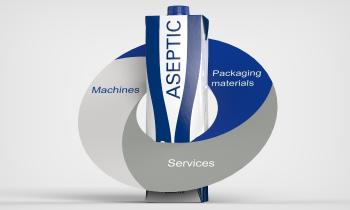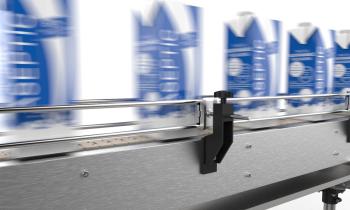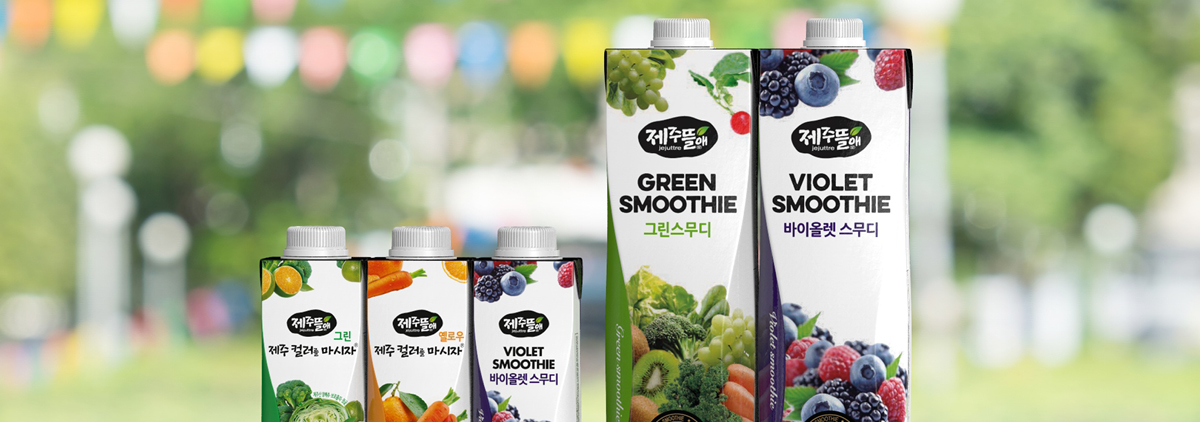How packaging makes your product stand out in the beverage flavor market - the Jinsan case study
The beverage market is at a changing point. It was expected to reach $1.9 trillion globally by 2021, with the market for nonalcoholic beverages alone comprising an $854 billion category[1] . Growth is solid across the whole spectrum, although concerns about health and sustainability are re-shaping the landscape. An increasing percentage of consumers are worried about alcoholic and sugar consumption, with one in three consumers cutting back on sugar[2], and 80% limiting or avoiding it altogether[3]. Due to evolving trends, product development is high, especially in the non-alcoholic sector. Artificial sweeteners are under scrutiny, as they are associated with unhealthy diets. According to the Mintel report, "Consumer Trends in Sweeteners", natural sweeteners are on the rise.
Demand for transparency is also rising. Since more and more consumers check the products’ ingredients before purchasing, brands have started focusing on front-of-package claims for reduced sugar, lower or no-sugar. Results of “no sugar” claims have been negative: nearly 60% think it is misleading for a product that is high in naturally occurring sugar to be labeled as “no added sugar”[4]. Simple messages tend to prove more effective. Ultimately, consumers want to understand why products contain certain ingredients over others.
Another key trend is sustainability. According to New Nutrition Business’ “10 Key Trends in Food Nutrition and Health 2022,” sustainability is one of five mega trends impacting product development. 52% say knowing where products are from is “somewhat” to “very” important. Corporate sustainability is a discriminating factor for 46% of consumers. This attitude shift is posing a great challenge to the industry, which, admittedly, has a great deal of responsibility when it comes to plastic pollution. Because of this, brands are looking for new packaging solutions not based on plastic.
What's more, consumers are not just changing what they are drinking, but also when and how. A new beverage culture is emerging, characterized by an on-the-go, fast-paced lifestyle that values moderation, wellbeing, and temporal abstention. Consequently, manufacturers are experimenting by creating new beverage drinking occasions that meld traditional drink categories, such as marketing coffee as energy drink.
Overall, sugar reduction, label-friendly ingredients, function, and innovation are the most impactful forces steering the market. In this landscape, manufacturers are looking at new packaging solutions to stand out. Packaging is a powerful communication tool for brands, as it can embody the concepts of health, transparency, sustainability, and on-the-go lifestyle, all while capturing the eye of the consumer. In this content, Jinsan, i.e. a leading brand in the food and beverage sector, is an ideal case study to understand the value of packaging.
Worldwide trends in the beverage flavor market: the role of packaging
When it comes to flavors, the top three trends driving growth are vegetable nutrition, all natural, and specialty 100% juice[5]. As health progressively ends up at the center of attention, the market is shifting towards healthy and nutritious food, with more than 80% globally seeing 100% juice as healthy, natural, and tasty[6]. The industry is moving towards a more intentional and emotional design. Above all, flavors are means to connect with consumers on an emotional level. Indeed, consumers are open to try something unfamiliar if it's flavored in a way that lets them connect with it. Consequently, storytelling is more and more a dominant factor in flavor. Consumers are on the look for products to resonate with in terms of personal values.
Which, it follows, makes packaging an invaluable tool to tell the consumers that them and the brand are on the same page. In particular, packaging is used to express ideas of healthy, green, and sustainable. According to Euromonitor, from 2013 to 2018, the proportion of packaged products with a focus on health and wellness has grown by 1.8 % globally each year[7]. Health is also associated with quality. With an increasing skepticism towards artificial sweetener and chemical additives, products labelled as "free from" show the most dynamic growth in the health and wellness sector. In this regard, packaging is crucial, in that it must be label-friendly while leaving enough room to express the brand’s message appropriately. As a consequence, innovation in shape is paramount, as shape not only makes for strong shelf impact, but also is functional in communicating the brand’s identity. The need for "green and clean" also extends to packaging. According to food expert Hanni Rützler, finding alternative solutions to plastic has the name of the game for two years now, since 2020. Aseptic carton, therefore, is perfectly positioned to show the most impressive growth in the future.
How companies respond to the trends: the case of Jinsan
Industry-wide, product development is at its highest, both flavor- and packaging-wise. With an increasing focus on wellbeing, sustainability, and environmental concerns, beverage manufacturers are looking more and more to aseptic carton. Among them, Jinsan makes for an interesting case study, as it has leveraged aseptic carton-based packaging to drive consumer growth.
Jinsan is a food and beverage manufacturer founded in 2016. It is a member of the MIN Group, which was founded in 1995. Jinsan produces fruit & vegetable beverages using healthy ingredients of Jeju and from abroad. The vision of the company is to realize a healtful life for its consumers, which it pursues by nurturing a healthy corporate culture, building consumer trust, and investing in R&D.
Beverage-wise, Jinsan focuses on the market economic, low-calorie, highly-nutrient soft drinks that have been greatly enjoyed by celebrities in Hollywood, USA as well as in Korea. This is no surprise, since Jinsan’s positioning is perfectly in line with market trends. Their ingredients are sugar-free, additive-free, and without any artificial components, as Jinsan focuses on wellbeing, trustworthiness, and healthy beauty. It keeps the strengths of raw materials throughout the whole process, and conducts production in complete sterilization and germless packaging system. Speaking of trustworthiness, Jinsan obtained objective reliability through HACCP, US’ FDA, and China’s CCIC. Finally, Jinsan provides beauty drinks with dietary fibers and collagen catering to female consumers, and is pioneering the beauty drink market.
Since its brand identity is grounded on health and trustworthiness, it was natural for Jinsan to go for a packaging solution that is able to embody these ideals. The choice fell on IPI and its newest packaging solution, Caliz. Jinsan opted for two premium sizes for its soft drinks: 250 ml Caliz and 1000 ml Caliz, both with Twist Cap.
Caliz: the IPI solution for the beverage flavor market
Caliz is the latest package innovation in the aseptic carton market. It is a premium quality product built upon the concept of trustworthiness and unique design, as showcased by the Caliz-based beverage Jinsan is launching for the first time in East Asia, consisting of 7 highly-safe layers mostly made of paperboard (over 70%). Finally, it is made of renewable sources up to 90%, and is therefore a perfect match for the demand for healthy, green, and sustainable solutions that is dominating the beverage flavor market nowadays.
Thanks to its new premium shape with unique features, it has a strong visual impact from all angles, ensuring brand recognition in a crowded shelf. The distinctive shape of Caliz is designed to increase the perceived benefits of healthy, green, and sustainable drinks, driving consumer awareness. Its design is both functional and stylish. It is functional, as it features an ergonomic shape, ideal for on-the-go and fast-paced lifestyles.

It is stylish in that its shape is highly recognizable, all while leaving plenty of room for the brand’s message. Because of these features, Caliz is ideal for the widest range of consumers. From millennials, on the lookout for value-added novelties, to the elderly.
What makes Caliz a perfect match for Jinsan
For healthy, green, and sustainable beverages such as Jinsan’s, Caliz is the obvious route. Market-wise, Caliz has registered a boom in plant-based beverages, especially those with reduced or no added sugar, no artificial sweeteners, dairy alternatives, and those dedicated to the sports nutrition world. Since Jinsan’s beverages are based on fruits and vegetables, Jinsan and Caliz are a match made in Heaven.
Caliz’s innovative shape makes for a perfect package for Jinsan as it is both visually impactful and wide in terms of its surface area, which, in the case of Jinsan’s, is used to display fruits and vegetables, furtherly strengthening the idea that Jinsan’s beverages are natural and green.

What’s more, its innovative shape allows Jinsan to experiment on label-friendliness in ways that are not available to traditionally-shaped products. In particular, Jinsan’s Caliz-based design uses the color of the ingredient on the side.
Caliz’s packaging material is also crucial to convey the sense of natural and wellbeing. From a life-cycle assessment perspective, aseptic carton’s carbon footprint is the lowest compared to HDPE and PET. Also, aseptic carton is completely recyclable, and IPI takes care of using materials whose supply chain is responsibly managed. Last but not least, Jinsan’s package design emphasizes the elegance of the product and expresses the high-class image of its brand, ‘Jejuttre’, and trust in customers.
Last but not least, Jinsan needed a product that can be enjoyed by the family all together but is also suitable as a full meal for busy modern men and women. Thanks to Caliz, Jinsan didn’t need to compromise, being able to use a single format for both on-the-go consumption (250 ml Caliz) and the whole family (1000 ml Caliz).
In conclusion, the beverage flavor market is changing rapidly and new packaging solutions are necessary to satisfy the evolving needs of the consumer base. Demand for healthy, green, and sustainable products has never been so high. In this context, Caliz is perfectly positioned, as it is a premium-quality, environment-friendly product with a unique shape, ensuring strong shelf impact and perfect product-market fit.
Looking for a new solution to wrap your product up? Get in touch!
 ASEPTIC SOLUTIONS PROVIDER
ASEPTIC SOLUTIONS PROVIDER
 FILLING EQUIPMENT
FILLING EQUIPMENT
